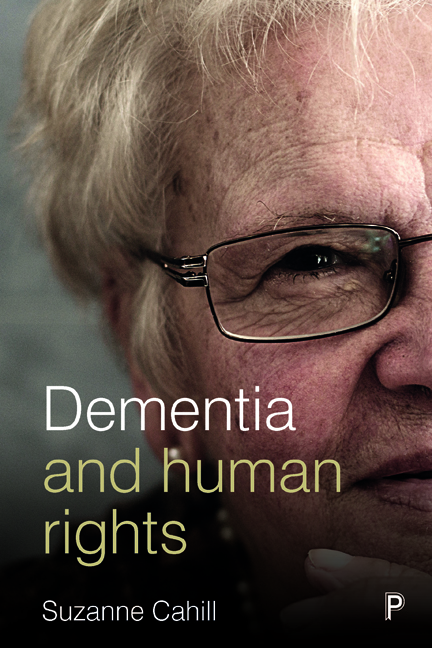eight - Conclusions: grounds for hope
Published online by Cambridge University Press: 22 April 2022
Summary
Across the world about 47 million people are estimated to have dementia and this figure is likely to rise to 131 million by 2050 (Winblad et al, 2016). The magnitude of dementia therefore cannot be ignored and the condition touches each of us in different ways and few will escape its reach. For dementia is not simply about the mind, the brain, memory loss and a decline in cognitive and functioning skills: it is also about personhood, selfhood and about who and how we are as human beings (Sabat, 2001), in a world where intact memories tend to be overvalued, and where an unprecedented emphasis is placed on rationality, thinking, cognitive competencies and economic productivity (Hughes, 2014).
In this way, dementia represents both a decline from a previous mental state and a very significant disconnect from the mainstream values of the dominant culture (Post, 2000). The fear and stigma of dementia is such that when talking about his diagnosis, the late Sir Terry Pratchett commented, ‘It occurred to me that at one point it was like I had two diseases – one was Alzheimer's and the other was knowing I had Alzheimer’s’ (quoted in Alzheimer's Society, 2008, p ix). Thinking about dementia requires a willingness to take on board different perspectives (Innes, 2009) and an awareness of the different contributions disciplines such as biology, politics, biomedicine, economics, sociology, social policy, ethics and philosophy can make. Dementia is everyone's fascination yet sadly nobody's core responsibility.
The aim of this book has been to challenge conventional thinking about dementia, to introduce a fresh conceptual lens and provide new analytical tools to interrogate policy and practice in order to promote the individual and their family members’ quality of life. I have also tried to bring the reader closer to the real life experiences of the individual who has the condition by citing their words in order to highlight some of the injustices and discrimination experienced. Reframing dementia as a rights-based issue is not new; however, what I have attempted to do is provide a more rigorous analysis of dementia-related practice and policy in order to demonstrate how a rights-based framework can offer new hope and provide a catalyst for social change.
- Type
- Chapter
- Information
- Dementia and Human Rights , pp. 175 - 188Publisher: Bristol University PressPrint publication year: 2018



